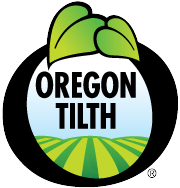OVERVIEW
Certification is an investment for organic entrepreneurs. Whether a beginning farmer sells directly to consumers at public markets or a soap producer wholesales distribution to retailers, certification offers third-party verification to buyers and sellers. Unfortunately, many beginning organic practitioners face significant financial and technical obstacles that can make certification unattainable. And we understand that certification can and should open new opportunities without creating more barriers for new organic producers.
The Challenge
Beginning farmers and food entrepreneurs are challenged to be technicians, accountants and marketing experts all rolled into one. But while many excel in starting a new business venture, most are challenged to find financial capital to support the many needs of a start-up. The level of public investment in supporting beginning farmers saw some gains in the Farm Bill. But with only $20 million in funding per year for farmer education programs and modest investment in capital loan access, beginning producers still don’t have many stable resources to support start-up needs.
While certification might not make sense for some farmers and processors, opportunities to sell products beyond a direct-to-market model are limited. And even when selling at a public farmers’ market to buyers, it can be challenging to educate consumers about one’s non-certified growing practices. But certification costs are often prohibitive for a beginning farmer with few resources on hand once land, equipment, training, seeds and more have been purchased.
With an increasing rise in labels used by processors, organic certification must steer the way for consumers seeking quality sustainable products. Working in partnership with beginning organic farmers and entrepreneurs, we believe that certification can be an accessible, value-added tool to help preserve a sustainable food system future.
The Opportunity
Oregon Tilth has been a leading voice in making certification accessible to all organic practitioners, regardless of size or financial well-being. Through our partnership with the National Sustainable Agriculture Coalition we achieved big gains in the 2014 Farm Bill. Renewal of the National Organic Certification Cost Share Program doubled mandatory funding per year – through 2018 – to $11.5 million to help defray the costs of annual certification for organic farmers and handlers, helping small and mid-scale farms enter into and remain in the national certification program. In addition, the Beginning Farmer and Rancher Development Program saw a 30 percent increase in funding for competitive grants to fund new farmer training programs – $100 million over 5 years in mandatory funding.
And, in 2014 we initiated an effort to improve access to and use of cost-share funding across the nation, partnering with several state departments of agriculture tasked with disbursing cost-share reimbursements. By providing certification information directly to the agencies, we are able to reduce paperwork and streamline the process for cost-share support.
Oregon Tilth continues to lead efforts to support beginning organic farmers through research and education. In 2009, we partnered with Oregon State University to develop the foundational «Growing Farms» workshop series. The program teaches beginning farmers about labor, cash flow, marketing, pest management and liability. In addition, we are committed to OSU’s research on enhancing cover crop efficiencies and providing beginning farmers with better tools to determine cost-effective methods to build soil quality. The creation of the Organic Fertilizer and Cover Crop Calculator helps new farmers determine nitrogen releases from different organic fertilizers and diverse cover crops to support understanding of farm management best practices.
As a part of the National Organic Program’s sound and sensible initiative to identify and remove barriers to certification, we have partnered with National Young Farmers Coalition (NYFC) to develop and distribute a self-assessment tool to help beginning farmers identify how the “next step” of organic certification can support their core values, enhance their operations, and increase their financial success. This tool will take the form of an interactive, flow-chart style pocket guide, engaging new and beginning farmers in evaluating the specific opportunities organic certification can provide and be presented to all NYFC members as well as at a series of national workshops and conferences.
